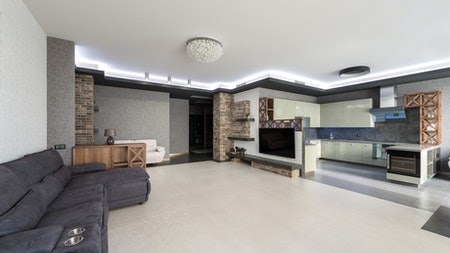Buying property for the very first time can be an overwhelming process. To put buyers’ minds at ease, it’s better to focus on a few of the perks to buying a house in South Africa for the very first time, which include a simpler transaction and the opportunity for greater financial support.
According to Adrian Goslett, Regional Director and CEO of RE/MAX of Southern Africa, first time buyers often will have a much simpler transaction than repeat buyers will have. “The fewer suspensive conditions in place on an offer, the more appealing it will be to sellers. That’s why offers placed by first-time buyers often have a better chance of being accepted over a repeat buyer who has made an offer on condition of the sale of their current home. If the buyer also already has pre-approval on his or her home finance, then this will make the offer stand out even further,” Goslett explains.
The next stumbling block for first time buyers is acquiring the funds to afford the purchase. “It can be tricky to afford a deposit when one does not already own a home to sell as a down payment towards the new home,” says Goslett. For this reason, Goslett suggests that first-time homebuyers might consider applying for a 100% home loan, which removes the need for a deposit. “While there are many benefits to putting down a deposit on a home, in today’s tough economic climate, it may be more realistic to take out a 100% bond if you’re a first-time buyer who, otherwise, will take years to save up towards a deposit.
Banks are willing to approve 100% bonds for first time buyers — and even 110% loans that cover the associated bond and transfer costs of the purchase too— if they can see that the buyer has a clean credit history and can comfortably afford the monthly repayment installments,” he states.
To ease the burden even further, first time buyers also have the opportunity to receive a government subsidy of up to roughly R120,000. The Finance Linked Individual Subsidy Program (FLISP) is a government subsidy that was created to help medium to low-income earners who want to buy a home in South Africa. “Those who meet the criteria will receive the funds to help purchase the home. This subsidy does not need to be paid back and there is no catch,” Goslett highlights.
To qualify, the homebuyer must first qualify for a home loan and must be either married, cohabiting or single with at least one dependent. They also need to earn a household income that falls between R3,501 and R22,000 per month, must be a South African citizen over the age of 18, and cannot have benefited from a previous government housing program or subsidy.
The amount of the subsidy will depend on the buyer’s income bracket — the lower it is, the higher the subsidy will be. For example: R121,626 subsidy for a household income of R3,501 to R3,700 or R27,960 subsidy for a household income of R21,801 to R22,000. Buyers can use the FLISP Subsidy Calculator to discover the amount for which they qualify.
“Buying a property is a big decision and a big investment. The entire process can be overwhelming for a first-time buyer – but it doesn’t have to be for those who stick to a few basic home buying tips and lean on the advice of experts in the industry. For example, get pre-approved, save up for a deposit, explore all the extra costs, and ensure that your credit record is in good shape.
Writer : Kayla Ferguson




